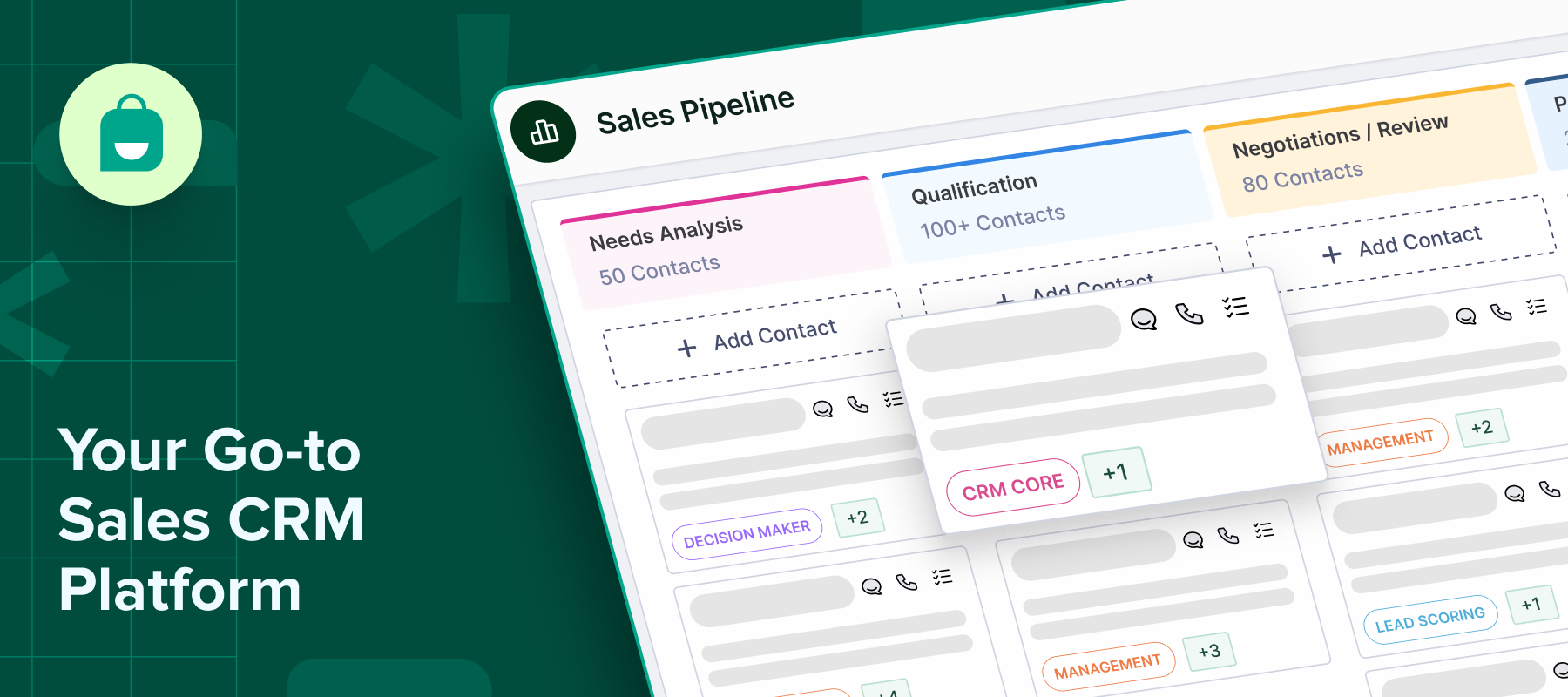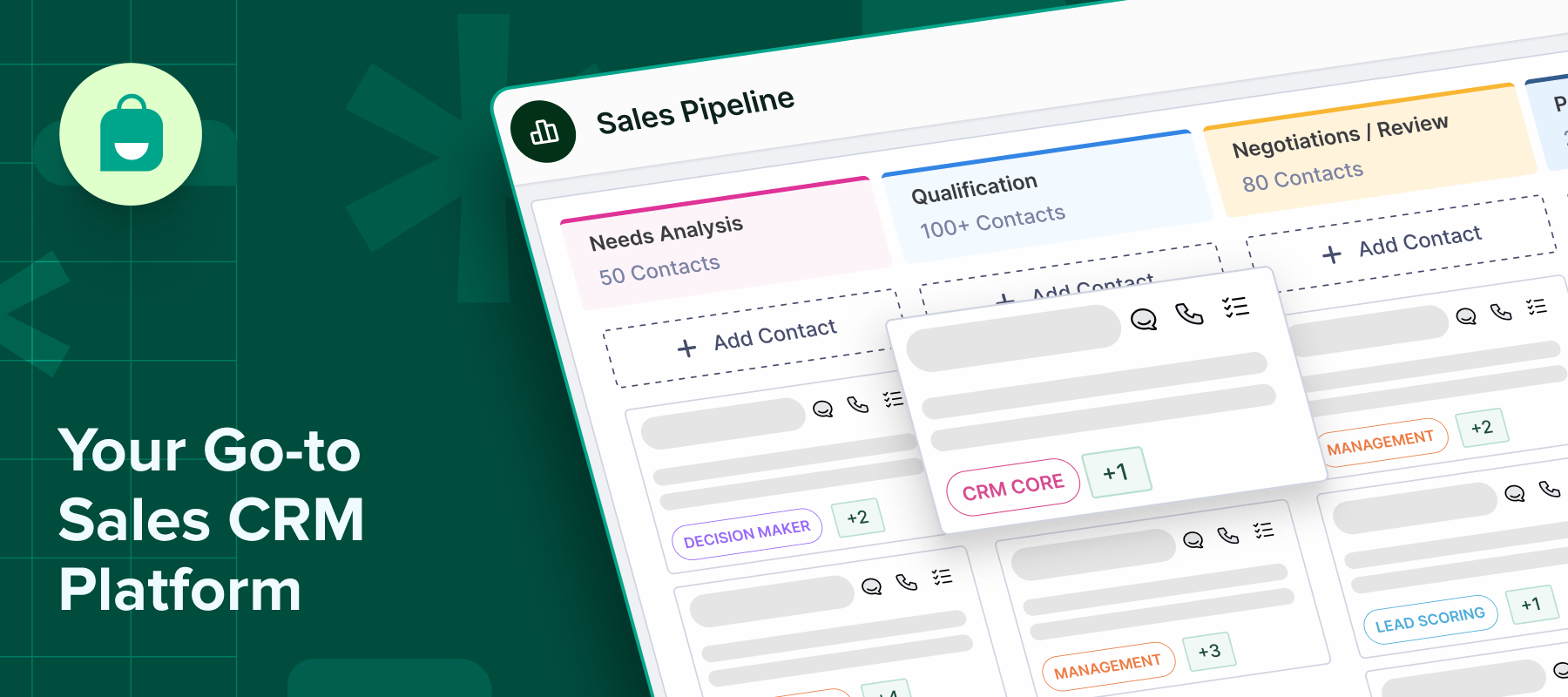As the current sales environment becomes increasingly fast-paced, traditional lead generation methods often fall short. Manual processes can lead to lost data, missed context, and inconsistent follow-ups, and as a result, promising leads slip through the cracks.
CRM automation is rapidly changing the game by streamlining how businesses are capturing, tracking, and nurturing leads. From intelligent data capture to personalized nurturing workflows, automation is now central to building a stronger, more consistent lead pipeline that actually converts.
In this article, we will have a closer look at how Sales CRM automation can improve lead generation and conversions.
What is CRM automation for lead generation?
CRM automation for lead generation can be defined as the use of a CRM system to streamline and optimize how businesses attract, capture, and engage potential customers. This automates repetitive activities and tasks such as lead capturing, scoring, follow-ups, and data entry, ensuring no lead is lost and every opportunity is nurtured effectively.
-Automatically syncs lead data from marketing campaigns to sales pipelines, thus reducing the need for manual input and any occurrences of errors in the process.
-Enables real-time lead scoring and customer segmentation, based on behavior, making it extremely easy for sales teams to prioritize.
-Triggers personalized follow-ups and prospect outreach at the right time, keeping them engaged across all touchpoints.
How does CRM automation boost lead generation?
Here are some of the key ways in which CRM automation can boost lead generation for businesses:
Automating lead capture from multiple sources
With CRM automation, you can capture leads from multiple touchpoints – web forms, WhatsApp chats, ads, and landing pages, and funnel them into a single dashboard. Platforms like Interakt can make this especially seamless by consolidating WhatsApp and website leads in real-time, hence ensuring faster responses and minimal risk of lost leads.
Intelligent lead scoring and qualification
With automation, your CRM can easily score leads based on their demographics, engagement levels, and behavior. Your team can then easily identify which of the prospects are more likely to convert and prioritize outreach accordingly.
Automated follow-up emails and messages
Timely follow-ups are key to keeping leads warm and increasing the chances of closing deals. CRM automation can make this possible by enabling scheduled follow-up emails and messages without needing manual effort. Tools like Interakt, for instance, can automate these touchpoints on channels like email and WhatsApp to keep conversations going when it matters most.
Personalized drip campaigns for nurturing
CRM drip campaigns can deliver targeted content relevant to prospects over time, based on where they are in their journey. Automation ensures that leads receive the right message at the perfect time, improving the chance of conversion and gradually contributing to a customer relationship built on trust.
Automated segmentation for targeted marketing
CRM also enables automated customer segmentation based on interests, geography, behavior, past interactions etc., helping you share more relevant tailored marketing content to your leads. Automation keeps these segments updated in real time so that your campaigns can stay sharp and personalized.
Tracking and analyzing lead behavior automatically
CRM automation can track how your leads are interacting with your website, emails, and messages. These are crucial insights that can enable your sales and marketing teams to understand what’s working and tweak campaigns as needed, and respond to behaviors in real time.
Reducing manual errors in lead management
Manual data entry often causes errors or missed follow-ups, costing conversions. By automating tasks like logging interactions, assigning owners, and scheduling reminders, CRM automation can reduce these risks and make your lead pipeline more reliable and efficient.
Benefits of using CRM automation for lead generation
Some of the key lead generation benefits of CRM automation are:
Higher quality leads
Not all leads convert, and finding the right ones to focus on is important. CRM automation helps you identify high-intent prospects faster by capturing key behavioral signals and applying intelligent lead scoring. This means your sales pipelines will only be filled with leads who are more likely to engage, convert, and retain with your business.
Shorter sales cycles
CRM automation prevents dragged-out sales processes by keeping a good momentum going with timely and effective reminders, emails, and personalized touchpoints. With the elimination of bottlenecks and timely outreach, leads move faster through the funnel and thus keep sales cycles shorter and effective.
Improved conversion rates
CRM lead capture automation also enables better timing, context, and consistency by helping you nurture leads with the right content, triggered based on their interests and actions. These automated and personalized interactions can build trust, keep prospects engaged, and thus boost the chances of closing deals.
Aligning marketing and sales teams
There’s a higher probability of leads falling through the cracks when marketing and sales teams operate in silos. CRM automation can bridge this gap by syncing the data, workflows, and communication history between the teams.
This way marketers can know precisely what’s converting, and the sales teams can understand the journey behind each lead, resulting in more strategic collaborations.
Best practices to maximize lead generation through CRM automation
These are some proven best practices that can help your business maximize lead generation using CRM automation:
Regularly updating lead scoring models
Lead scoring should not be seen as a one-time setup. Update your lead scoring models to ensure that you are prioritizing the most relevant and sales-ready leads and thus adapting as customer behaviors, channels, and purchase patterns evolve.
Setting up personalized workflows
Generic drip campaigns are inadequate and do not have the required impact. You need to personalize your CRM drip campaigns and workflows based on lead interests, behavior, funnel stage, etc. in order to deliver relevant, targeted communication that guarantees conversions.
Integrating CRM with marketing tools
When your CRM is well connected with tools such as email platforms, ad managers, analytics dashboards, etc., your teams get a more comprehensive picture of every lead. This is highly beneficial as it eliminates silos and streamlines communication between your marketing and sales teams.
Monitoring and optimizing performance
Regularly review your CRM automation and key metrics such as open rates, conversion rates, and engagement trends, to ensure proper functioning and to refine your strategies.
Continuous optimization ensures that your automation delivers results consistently as your business grows. Some of the best CRM for lead generation, like Interakt, come with crucial analytics and reporting features to help businesses make data-informed strategies and decisions.
Conclusion
Ultimately, the difference between a missed lead and a closed deal often comes down to speed, perfect timing, and effective follow-through. CRM automation gives your team the needed edge by keeping every lead organized, every follow-up on track, and every opportunity nurtured.
Want to convert more leads into loyal customers? Get started with Interakt CRM today.


